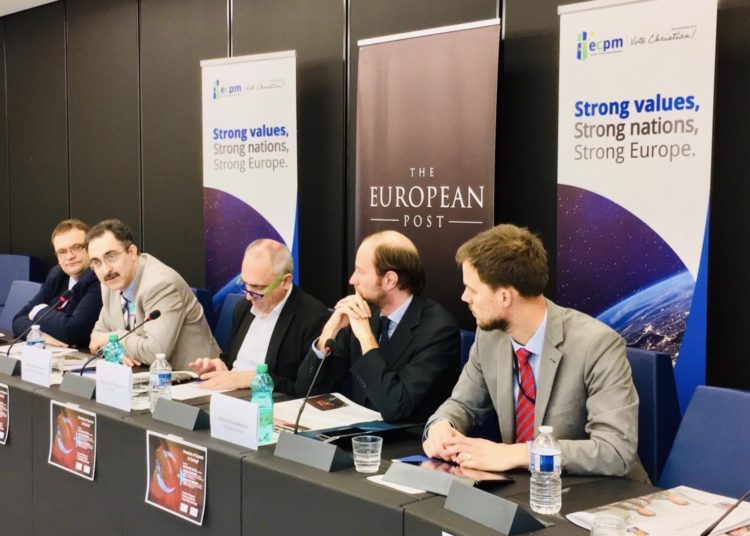Turkey under the current Islamist government led by President Recep Tayyip Erdoğan poses security risks for Europe, with proxies in the Turkish and Muslim diasporas supported and mobilized by regime elements for political goals, according to a panel discussion held at the European Parliament building on Thursday.
“Turkey is not acting like a rational actor in protecting interests but rather a rogue non-state player that is driven by the ideological motivations of the Islamists and neo-nationalists who grabbed power, suspended the rule of law and destroyed democratic institutions,” said Abdullah Bozkurt, director of the Stockholm-based Nordic Research and Monitoring Network.
“The major challenge we face in Turkey now is that Erdoğan’s interests do not overlap with those of Turkey and that he is ready to sacrifice everything to cling to power,” he added.

The event, held at the European Parliament building in Strasbourg, featured a debate on press freedom in Turkey, where 211 journalists, including the nation’s top authors and writers, are jailed. In addition to that, 168 journalists are wanted for arrest by authorities on trumped-up charges of terrorism. The debate was organized by the European Post and the European Christian Political Movement.
“The targeting of journalists is by no means random,”’ Bozkurt said, stressing that reporters in particular who have written extensively on corruption in the government and on the Erdoğan government’s arming and funding of radical jihadists in Syria were targeted in this unprecedented persecution.
The fact that 150 generals, some 50 percent of all generals in the Turkish military, which is NATO’s second largest army in terms of manpower, were dismissed on totally fabricated charges and jailed on dubious evidence of terrorism and coup plotting confirms that the current government is pursuing a different path for Turkey, Bozkurt explained. He also noted that some 30 percent of all diplomats, some of them ambassadors who had advised presidents and prime ministers, were dismissed and/or jailed on false terrorism charges.

Stressing that there is a new and growing risk in Europe that stems from Erdoğan’s efforts to create proxies in both Turkish and non-Turkish Muslim diaspora groups, Bozkurt said this is something unprecedented for Turkey, whose past government, unlike the current one, had refrained from interfering in European domestic affairs. Erdoğan has mobilized them when he needed to boost his stature internationally and threatened host nations in Europe and will continue to do so whenever he needs to, Bozkurt remarked.
Marco Gombacci, the Italian journalist who leads the European Post magazine as its editor-in-chief, warned about Turkey’s role in NATO, stating that the values of the Erdoğan government are not compatible with NATO values and that the Turkish army risks clashing with another NATO ally, the United States, in Syria. Peter Van Dalen, a member of the European Parliament from the Netherlands and vice chairman of the European Conservatives and Reformists group, said Turkey’s membership in the European Union is not possible given the state of affairs in Turkey.












